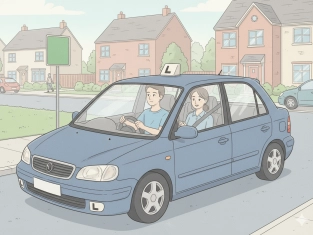Modal Verb May
Table of Contents
Exercises
Explanation
We use may to talk about:
-
permission (when something is allowed)
-
possibility (when something can happen)
-
wishes or hopes
Permission (Allowed or Not Allowed)
Use may to ask for permission or to give permission.
Use may not to say that something is not allowed.
Examples:
May I open the window?
You may sit here if you like.
May we use your garden for the party?
You may not park in this area.
Students may not leave before the bell rings.
Possibility (Something that can happen)
Use may to say that something is possible, but not certain.
Examples:
It may rain later today.
She may be at home now.
We may travel to Spain this summer.
This book may help you learn faster.
He may not come to the meeting.
Wishes and Hopes
Use may at the beginning of a sentence to express a wish or hope.
Examples:
May all your dreams come true!
May you have a great weekend!
May this year bring you joy and success!
Structure
|
Sentence Type |
Structure |
Example |
|
Affirmative |
Subject + may + verb |
You may leave now. |
|
Negative |
Subject + may not + verb |
He may not agree with us. |
|
Question |
May + subject + verb? |
May I ask you a question? |
Tense Note
May is used for the present and future.
To talk about past permission, use was/were allowed to.
Examples:
I was allowed to stay out late yesterday.
You will be allowed to join the club next year.

